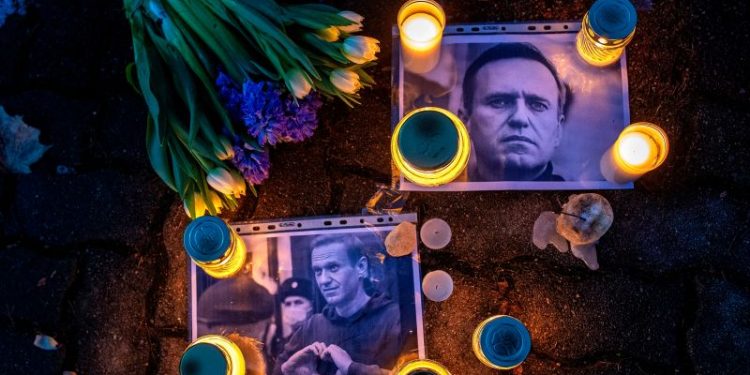Arrests, vigils, and Kremlin silence: Russia marks Alexey Navalny’s death
Arrests, vigils, and Kremlin silence: Russia marks Alexey Navalny’s death in a wave of protests and vigils across the country. Navalny, a prominent opposition figure, died in a Russian prison hospital on Sunday after being on a hunger strike for 24 days.
The news of Navalny’s death sparked outrage both within Russia and internationally. Thousands of people took to the streets to protest his death, leading to a heavy-handed response from Russian authorities. Hundreds of protesters were arrested, including Navalny’s wife, Yulia Navalnaya, who was among the detained.
Despite the growing calls for an independent investigation into Navalny’s death, the Kremlin has remained silent on the matter. Russian officials have denied any wrongdoing in Navalny’s treatment and have accused foreign powers of exploiting his death for political gain.
In Moscow, a vigil was held at the site where Navalny was arrested upon his return to Russia earlier this year. People laid flowers and candles at the spot, paying their respects to the fallen opposition leader. Similar vigils were held in other cities across Russia, as people gathered to mourn Navalny’s passing and demand justice for his death.
Navalny’s death has once again put a spotlight on the deteriorating human rights situation in Russia. The treatment of political prisoners, media censorship, and crackdowns on dissent have all come under scrutiny in the wake of Navalny’s passing. Many are calling for increased international pressure on the Russian government to uphold human rights and the rule of law.
As the world mourns the loss of a courageous critic of the Russian government, the question remains: will Navalny’s death be a turning point in the fight for democracy and freedom in Russia? Only time will tell, but one thing is clear – the memory of Alexey Navalny will continue to inspire those who seek a more just and open society in Russia and beyond.
















